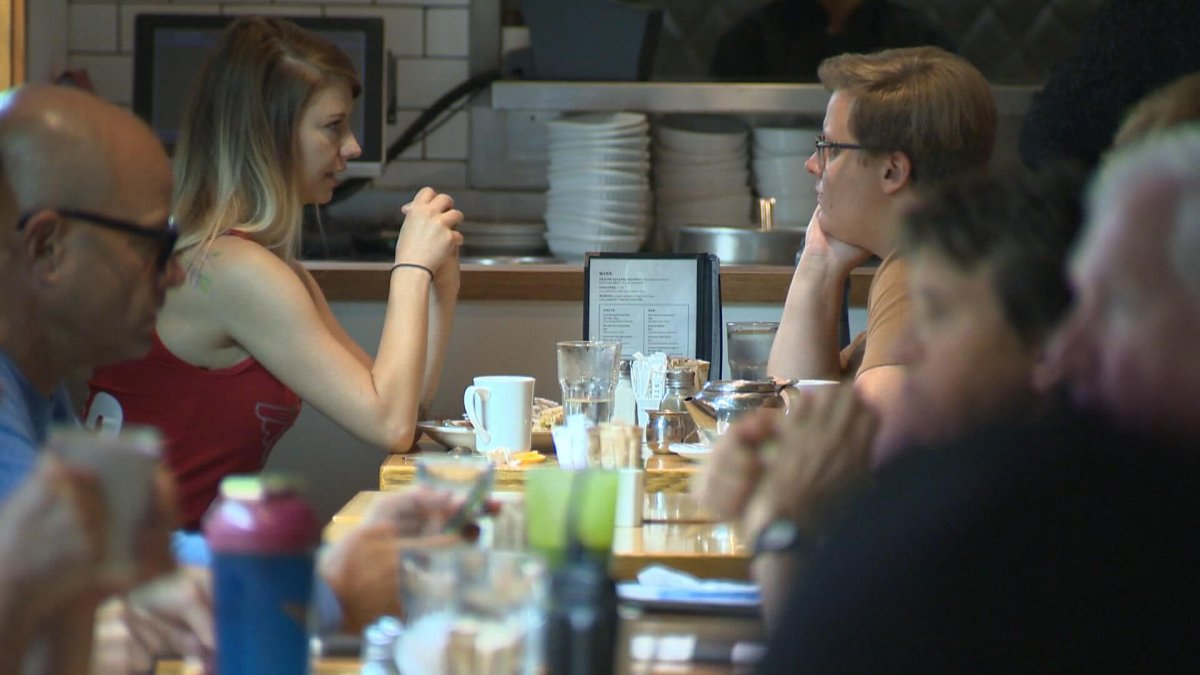The province says it’s confident about its economic outlook moving forward, as Saskatchewan continues to navigate the novel coronavirus pandemic.

Total employment decreased by 10 per cent between February 2020 and May 2020, as outlined in Saskatchewan’s 2020-21 provincial budget.
Saskatchewan’s 2020 and 2021 unemployment rates are projected to be 8.6 per cent and 7.6 per cent, respectively. In 2019, the province’s unemployment rate was 5.4 per cent.
“Assuming we continue to build our economy and hit goals in the growth plan, we should be good. Will it be easy? No. We will need spending restraints,” said Donna Harpauer, Saskatchewan finance minister.
“We should be able to rebuild our economy and sustain services going forward.”
Accommodation and food service businesses continue to be impacted the most during the pandemic, with about 15,500 jobs (41.2 per cent drop) lost between February 2020 to May 2020.
Wholesale, retail, information, culture and education sectors also took significant hits during the pandemic in terms of job loss.
Each sector lost about 8,000 jobs. Job losses in the health and social service industry equaled nearly 5,000.
Saskatchewan is investing $3.1 billion into building hospitals, schools, highways, municipal and Crown corporation infrastructure to help create jobs as part of its economic recovery plan.
The province is also investing $7.5 billion as part of its capital plan which includes $2 billion announced in May.
“These are projects that will result in much needed economic activity and jobs,” Harpauer said. “Saskatchewan is fortunate to be in a strong financial position to make these kinds of important capital investments in every part of our province.”
Agriculture is one of two (utilities) industries that have seen growth in terms of employment, adding 4,700 jobs from February 2020 to May 2020.
In April, agriculture product exports were up 20.1 per cent, year-over-year. All total goods exported in April fell by 8.2 per cent.
“Saskatchewan has what the world needs — food, fuel and fertilizer. Those staples will still be needed,” Harpauer said.
“It depends on how other countries open their economies and their ability to buy product. This will be a multi-year fix to get back to where we were. Fundamentals have not changed.”
Despite Saskatchewan’s reopen plan, now in Phase 3, employment in Saskatchewan for 2020 is expected to decline by nearly 16,000 jobs.
Overall, the province believes it’s due for a rebound in 2021, assuming that economies all over the world return to normal.
While Saskatchewan’s real GDP is expected to decline by 6.6 per cent in 2020, the province projects a 5.2 per cent growth in 2021.
Those numbers are similar to Canada’s real GDP forecasts — a 6.2 per cent decline in 2020 and a 5.4 per cent projected growth in 2021.
Saskatchewan estimated a $2.4-billion budget deficit for the fiscal year, something University of Saskatchewan environmental and sustainability professor Greg Poelzer said is manageable.
“The government must be rather pleased they are going to come out of this looking at kind of a middle of the road deficit for what people are anticipating which bodes well for the rebound,” Poelzer said.
“It gives the government a little bit of flexibility over this upcoming year to respond to the COVID crisis and the bounce back we need in the economy.”
The province says its economic recovery also relies on oil prices rebounding.
Oil investment and production are expected to decrease by 37.1 per cent and 13.9 per cent in 2020, respectively.
“The biggest downfall of course is oil,” Harpauer said. “They’re (oil industry) well aware of their challenges and there’s not much optimism at present. They will continue to lobby and push for investment in the energy sector. The feds haven’t stepped up to the plate for oil.”
Poelzer said an oil rebound will depend on a few things.
“It’s not only when are the economies going to come back, air travel, other transportation, which will drive up demand. When China revs up its economic engine, if that happens, it will drive oil up,” Poelzer said.
“What we don’t know is the volatility, politically which was a major determinant in the crash of oil prices.”
Despite the province’s optimism, the opposition isn’t as confident and showing displeasure in Saskatchewan’s 2020-21 budget.
“They didn’t want to be here today (Monday), because they don’t have a plan for tomorrow,” said Ryan Meili, Saskatchewan NDP leader.
“People are hurting more and more and they’re looking at today’s budget for some indication that the government has a plan. Unfortunately, they won’t find it. It’s not there.
“We’re seeing the worst economic downturn that any of us have lived through with a loss of 10s of thousands of jobs and an enormous impact on the lives of Saskatchewan people.”
As for potential tax increases, Harpauer said she believes there isn’t a need for one at this point in time, but will reassess the situation later, if necessary.






Comments